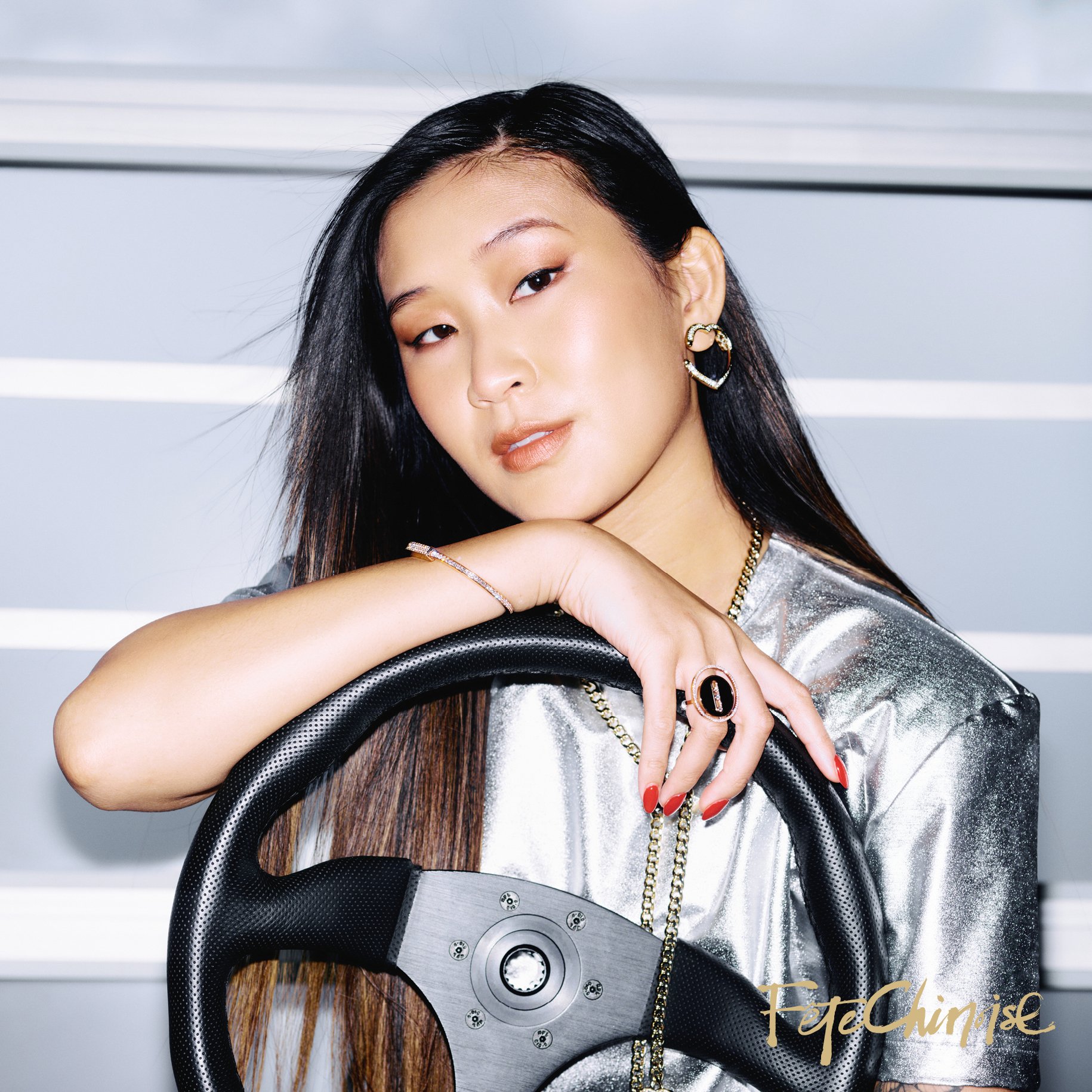(Re)Learning Cantonese as a Jook Sing
竹星學廣東語
Written by Jason Au
Translated by Tao Jing
Photography by Shlomi Amiga Photography
Lights, camera, action! On cue, the theme song of Fairchild Television’s prime time talk show, Leisure Talk, began. For a brief moment, I spaced out as I heard the whimsical melody heard countless times before. When it ended, there was a brief silence before the host began talking and then it hit me – I wasn’t watching the show from my parents’ living room, I was in their television studio being interviewed for an hour-long Chinese episode, sharing the story of my unexpected journey to relearn Cantonese and establish a Cantonese language scholarship at the University of Toronto.
燈光,攝影機,ACTION!恰好在這個時候,新時代電視清談節目的主題曲《大城小聚》開始播放。當我聽到這聽過無數次的,《大城小聚》的主題音樂時,一瞬間若有恍惚。在歌曲結束與主持人講話之前的短暫沉默令我驚覺 — 我並不是在家裡的客廳觀看這個節目,而是親身坐在電視直播室分享我意外重新學習廣東話語的過程,並在多倫多大學設立區竹橋廣東話學業獎學金的經歷。
“Until my late-twenties, Cantonese was a language of exclusion to me; exclusion from conversations at family gatherings and from social circles that shunned Canadian-born Chinese kids like me. ”
“Tired of the labels assigned to me, I decided that it was time to take control of the narrative around my self-identity and deepen my knowledge of my cultural origin, including learning my family’s mother-tongue. ”
We were labelled by the Chinese community with names like CBC (“Canadian Born Chinese”), banana (yellow on the outside, white on the inside), and “jook sing” (hollow bamboo). My parents, who emigrated from Hong Kong in the late 1960s, prioritized my integration into mainstream Canadian society. Learning Cantonese was just “nice to have,” but not a must. However, Mainstream Canadian society also carried different assumptions for me: physical abilities as an athlete, academic ability as a student, and leadership abilities as a white-collar professional later in life. Like many CBCs, I was confronted by judgments and stereotypes on two fronts that boxed me into a cultural purgatory of “non-belonging.” Tired of the labels assigned to me, I decided that it was time to take control of the narrative around my self-identity and deepen my knowledge of my cultural origin, including learning my family’s mother-tongue.
我第一次和唯一一次在廣東話節目的出演將是我人生中說廣東話時代的里程碑時刻。在此之前的二十八年,對我而言只是一個沒有廣東話的時代。我的父母在60年代後期從香港移民到加拿大。身為他們兒子,他們優先考慮的是讓我能融入加拿大的主流社會。讓我可以流利地說出不帶任何口音的地道英文就足夠了;學習廣東話被當成外語課外活動,若果學會廣東話只是錦上添花而矣。直到我差不多三十歲,粵語對我來說還是一個把我被排斥在外的語言。這種排斥不僅出現在家庭聚會中親友之間的交談,也出現在和我一樣在加拿大出生的華人小孩組成的社交圈裡。通常像我這樣的看起來和中國人一樣,卻不懂漢語的人會被華人社區用貼上 CBC(加拿大出生的中國人,Canada born Chinese)、香蕉(外黃內白)和竹星(編按:比喻外地出生的新生兒個心中無中華文化的思維;竹升其實是指「竹槓」,竹槓以粗大的竹子做成,中間多節而不貫通。(就是有兩面都不通的意思),以此比喻外地出生的新生兒不諳華語)的標籤。加拿大主流社會也同樣有各種不同標籤,而這些標籤常以具體的假設形式出現:運動員的身體能力、學生的學習能力、以及在人生後期作為白領專業人員的領導才能等。和很多 CBC 一樣,我被夾在兩個社群中間,赤裸地面對著各種來自外國人和華人的評論和刻板印象,把我分類到一個沒有歸屬感的文化煉獄裡。我厭倦了被標籤後的身份限制,我決定是時候重新掌握主動權去講述關於自己的身份,並主動加深自己對廣東話文化淵源的了解。
“It is the language I speak during visits to the doctors and in interactions at my favourite supermarket.”
I pursued my Cantonese studies with great zeal and sought out every opportunity to practice the language. After a two-year online Chinese history course offered by Harvard University. I travelled to my ancestral village in Kaiping where I traced my family history back to 765 AD. Along with countless trips back to Hong Kong, I was able to connect with my family history and put it into Chinese historical context.
Achieving fluency and literacy in the Cantonese language is a source of joy in my life. It is the language I speak during visits to the doctors and in interactions at my favourite supermarket. In uptown Toronto, shopkeepers and restaurant workers now instinctively speak to me in Cantonese first rather than English or Mandarin. Being able to switch to Cantonese in more casual business situations with Cantonese-speaking colleagues also brings a different dimension to networking. Unexpectedly, Cantonese has also been a very useful language during my travels in Southeast Asia, particularly in Malaysia where some of my best memories are chance encounters and unexpected conversations in Cantonese during meals at local hawker centres and bakeries.
If you are enjoying our content, Purchase a copy of our 2020 Magazine here.
為此,我不斷尋找每一個可以讀,寫,講廣東話的機會。我報讀哈佛大學一個為期兩年的中國文化網上課程,並順利完成課。我前往在開平的祖屋,在那裡我追溯我的家族史,最早可追溯到公元765年。
能夠講得一口流利廣東話和閲讀中文成為我快樂的泉源,與醫生會面時,在超市購物時,在茶餐廳吃下午茶時和餐館老闆和工作人員日閑聊時隨時隨地使用廣東話,而不是說英文或普通話對答。在休閒的商業環境中,能夠使用廣東話與同事溝通可以帶來不同層面的人際交流,尤其是喝著一杯港式奶茶的時候。出乎意料之外,在東南亞旅遊期間,粵語也是一種常用的語言,特別是在馬來西亞,好些最美好的回憶來自於在當地小販中心與麵包店用餐時的一些偶遇和意外的對話。
“Over the course of my personal journey, Cantonese has evolved into a language of inclusion that has given me a sense of belonging to a community that is larger and more global than I have ever imagined, and I have only begun to scratch the surface.”
Over the course of my personal journey, Cantonese has evolved into a language of inclusion that has given me a sense of belonging to a community that is larger and more global than I have ever imagined, and I have only begun to scratch the surface. It brings a sense of joy and richness to my interactions with family, strangers and everyone in between that happens to also speak the language as well. Life has become more colourful as a result of achieving fluency. I hope that others will take inspiration, to reap the same joys and benefits.
在人生的旅途中,廣東話成為日常用的語言之一,它賦予我一個比我想像中更廣泛的,更全球化的歸屬感。雖然我才剛剛接觸到歷史的皮毛。它還給我和家人、陌生人、以及所有廣東話使用者之間的互動帶來了無可比擬的快樂。在我盡最大努力去熟練自己的傳統語言時,我的生活同時變得多姿多彩。我希望其他人可以從我的身上獲得靈感,同時穫得相同的快樂和好處。










